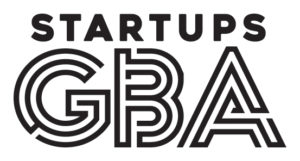
When perusing the tech blogs, you’ll often read about startup successes – billion dollar valuations, exits in the hundreds of millions and the latest startup to raise a large chunk of funding. But what about those that don’t fare so well?
According to the Wall Street Journal, 3 out of 4 venture-backed startups fail – as in the number of startups that are unable to pay deliver a return on investment. On a broader spectrum, a reported 90% of tech startups will fail – which includes companies that have had great traction in the beginning but was unsustainable such as MySpace.
While it’s becoming more and more trendy to do a startup, any founder can attest to the fact that the well-trodden path of entrepreneurship is not an easy one – and can be in fact, quite hellish. Which is why we wanted to share the experiences of a founder whose startup did not make the cut. Although he wished to remain anonymous due to the negative impact the failed venture has had on his personal life, we thank him for letting us in his cautionary tale of entrepreneurship which can be helpful to any first-time founders.
In his words:
My biggest takeaways were:
Beware of false achievements – my startup involved two technological elements, one of which I was an expert in, the other I was a complete novice. What I saw as an achievement in the novice area, a competitor would see as a basic step. In some cases, I would spend weeks trying to achieve something because I first had to learn about how it all worked before I executed the solution. In my mind I had created a competitive edge and solved a major technical hurdle, but in reality I had solved a simple puzzle that an expert would answer in minutes. Because I was regularly achieving these false achievements, I believed I was going from strength to strength and that all the time and money I was spending was well spent. The truth was the opposite.
If you’re outsourcing a major part of the business execution, you’re already in trouble – I had a technical background and could have implemented the solution I wanted, but I was funding the business from my own pocket and had to juggle a full time job. As a result, I outsourced the one area I had knowledge in, spending tens of thousands of (US) dollars. This money could have been saved if I did the work myself, and could have been spent much more wisely
Just because people like it, that doesn’t mean they’ll pay for it – I arranged demos with extremely high profile companies, they were all interested in the concept, loved the execution but didn’t sign on the dotted line. Why? Perhaps I overestimated my skills as a salesman, or perhaps they didn’t have an immediate business need for it. Whatever the reason, I only got a very small take up. My advice would be to start trying to sell the product before it’s even built and get some pre-orders to prove that you have a viable product – this could even be something as simple as a Kickstarter campaign to see if there is interest.
Realise that at the beginning your business is probably worthless – I regularly attended networking events and socialised in circles with people who had deep pockets. On a few occasions, some people even showed interest in investing. I was so eager to keep 100% ownership that I would tell people I wasn’t looking for investors. Big mistake, as with investment and guidance, I believe the business could have worked.
Know when to throw in the towel – Unfortunately, I left it until I was broke before throwing in the towel. I had spent all my savings and was left in a very bad position. I’m still the ideas person I used to be, I still have technological business concepts coming out of my ears, but I have yet to act.
My mistakes have given me the following checklist for every idea:
- Do you have the expertise to execute all key technological elements of the business?
- Do you have the time to implement all these elements yourself if need be?
- Have you proven the product/service can’t be easily and quickly copied?
- Are you confident that you could get an investor to part with $100,000 USD of their hard-earned money to put into the business?
If you can say yes to every point, you’ve got the beginnings of a potential idea, but it’s by no means a certainty. Failing at starting a business has been a huge learning experience for me. I made a lot of basic mistakes, but I’m a better person for it.
WSJ feature on failed startups with Martin Kessler and Jon Buford:
